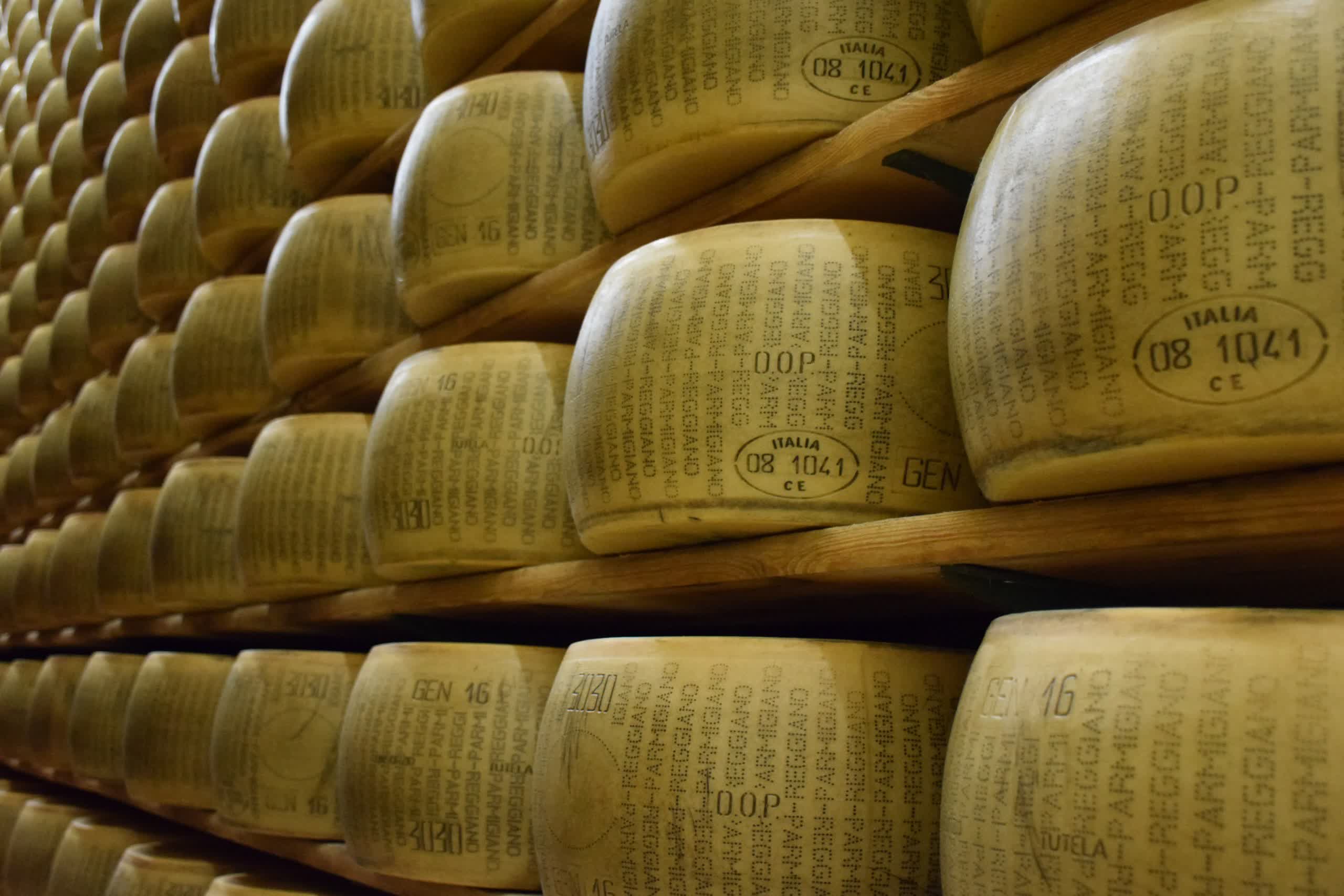Bottom line: Using microchips to track everything from inventory to pets has become pretty commonplace. Italian Big Cheese producers want to use them to throw a wrench in the multibillion-dollar counterfeit parmesan business. They intend to use the technology to ensure buyers that the parm they are getting is the real wheel.

Cheesemakers in Italy have begun inserting microchips into their cheese to thwart counterfeiting. The tiny identifiers, no bigger than a grain of salt, are inserted into the rind of the cheese – primarily Parmigiano Reggiano (parmesan cheese). They give off a signal with a unique serial number that verifies it as authentic. The tag also includes maturation date and origin.
As weird as it sounds, counterfeiting cheese is big business. According to Italy's agricultural association Coldiretti, cheese counterfeiters profit about $2 billion annually. That figure is only half a billion dollars shy of Italy's legit parmesan business ($2.5 billion/year). CBS News notes that the country's Parmigiano Reggiano Consortium, which oversees cheese production, started a trial program to track 120,000 40-kilo (88-pound) wheels back to their producer.
Of course, it's worth noting that Italy is very proud of its parmesan and considers any knockoff made outside of the provinces of Parma, Reggio Emilia, Modena, Bologna, and Mantua to be counterfeit. In fact, EU regulations forbid cheesemakers outside those regions from labeling their cheese as "parmesan."
Unfortunately, those rules do not apply outside of Europe. Many so-called counterfeits are produced in the US, primarily in Wisconsin, California, and New York. Stateside producers also make other copycat Italian cheeses, including Grana Padano, mozzarella, and Gorgonzola.
Brazil is also a significant producer of counterfeit parmesan packaged under the name "Parmesao." Adjacent Argentina makes one called "Regianito." Even though they have a different name, Italy still considers them counterfeit because the makers give them Italian-sounding brand names and try to pass them off as authentic parmesan cheese.
It's not just cheese, either. Coldiretti told The Telegraph that food products claiming to be "made in Italy" pull in roughly $130 billion annually. The US consumes about $40 billion in fake Italian wines, cheeses, and meats, like prosciutto. Coldiretti estimates that over two-thirds of the world's "Italian" food products are counterfeit.
In 2020, Police busted a counterfeit wine syndicate buying cheap wine from Sicily and rebottling it under the high-end Bolgheri Sassicaia label. Wine Spectator reported the father and son team's setup could produce 4,200 bottles of fake wine per month, worth about $434,000. Their operation was even sophisticated enough to duplicate the vineyard's anti-counterfeiting hologram.
With a counterfeiting industry rivaling parmesan's own, it's hard to tell how successful chipping cheese can be in curbing the problem. If counterfeiters can cheat official holograms, they would likely have the resources to figure out how to do the same with microchips.
https://www.techspot.com/news/99878-italian-cheesemakers-chip-their-parmesan-combat-2-billion.html